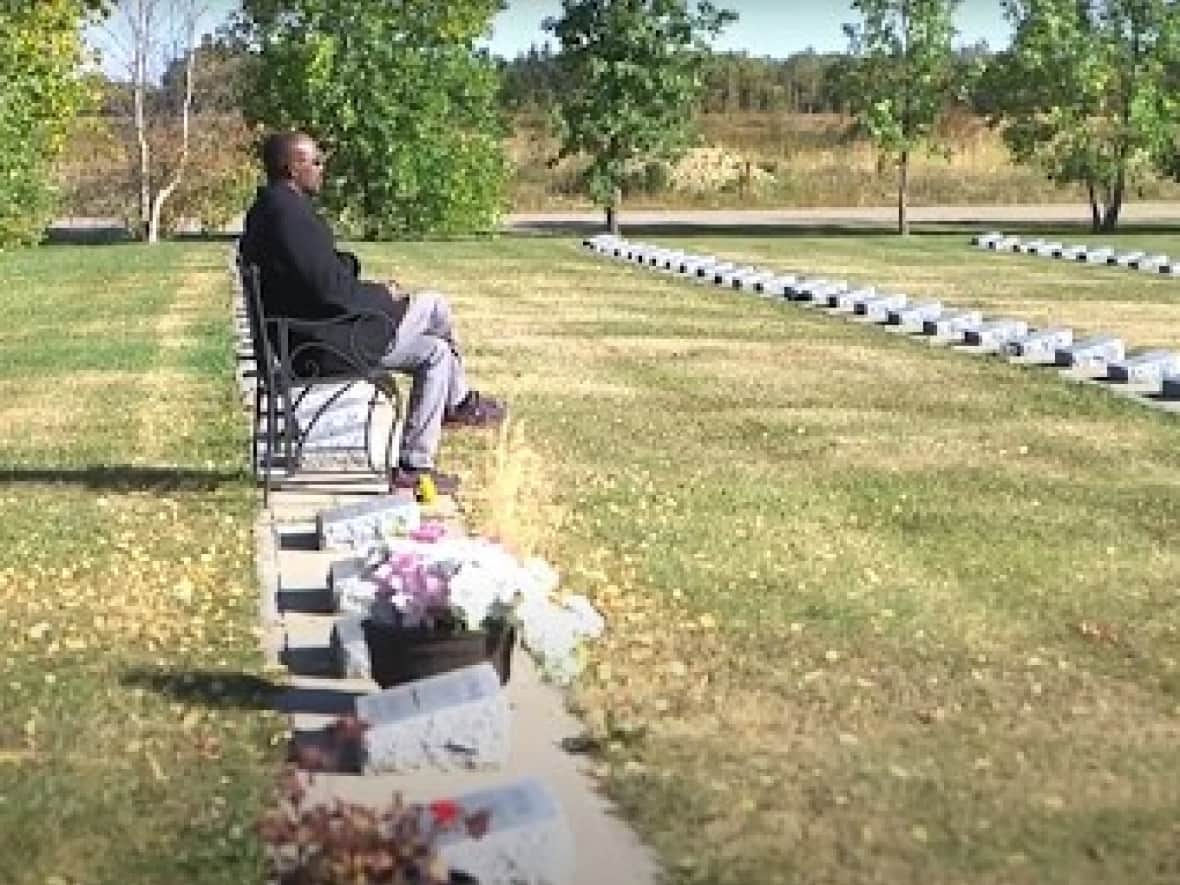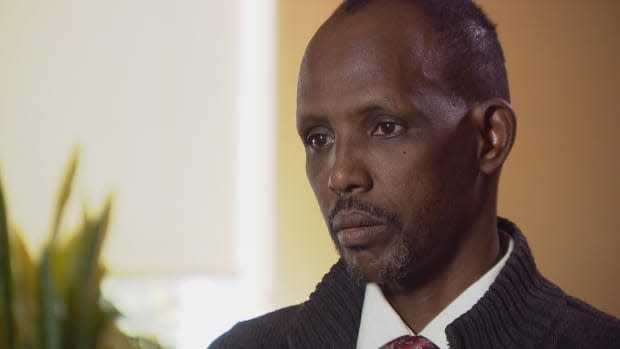New report, documentary shine light on unsolved homicides of Somali men in Edmonton

A new report and an accompanying documentary are focusing attention on the unsolved homicides of Somali men in Edmonton.
"For years, cases of murdered young men of Somali heritage have remained unsolved in Edmonton, leaving many families without closure," said Renee Vaugeois, executive director of the John Humphrey Centre for Peace and Human Rights.
The centre, with advocacy group Taccalusa Institute and the Coalition for Justice and Human Rights, released a report this week detailing the perspectives of community members who have personal connections to the unsolved murders of Somali men and youth in Edmonton between 2005 and 2011.
The report is called Journey for Justice. The same title has been given to a 30-minute documentary film by Edmonton filmmaker David Newton Opoku-otoo, who works under the name David N.O.
The film's premiere is tonight — Friday, Feb. 24 — at the Telus World of Science.
The Journey for Justice report details the discussions and provides a list of actions to "make positive change" in the community. A series of recommendations will be submitted to the Alberta government, EPS, the Edmonton police commission and the City of Edmonton.
Mahamad Accord, CEO of the Taccalusa Institute, estimates the murders of more than 70 Somali youth and men since 2005 have yet to be solved in Alberta.

In May last year, 46 community members joined representatives from the Edmonton Police Service (EPS) at a town hall to discuss the issue of the unsolved homicides.
N.O., the filmmaker, captured the town hall as part of his documentary, which aims to highlight the stories and lasting impacts of the unsolved homicides.
"This project was very emotional because it dealt a lot with loss, people who died unjustly. The conversations were very hard hitting," N.O. told CBC News.
The report identifies issues between the Somali community and police, and provides suggestions for improving communication — and a course toward solving cold-case homicides.
"We want to see justice and sometimes it goes the way we want it and sometimes it doesn't. Accountability is important. Those are the key things; accountability and communication," N.O. said.
Edmonton lawyer Tom Engel, chair of the Criminal Trial Lawyers' Association's policing committee, was at the town hall. Oversight of the police needs to improve, he said.
"With the issue of the Somali community, my takeaway is that they don't trust the police," Engel says in the report.
In 2010, following a string of murders involving Somali men, 2,000 people signed a petition calling on the Alberta government to form a task force to find ways to solve the cases and prevent more deaths.
The provincial government at the time rejected the task force, saying it would cost too much and take too long.
In 2016, EPS offered rewards totalling $440,000 to get information about 11 unsolved homicides — the majority linked to the Somali community.
Calls for change
Although the report doesn't renew calls for such a task force, it does suggest reviewing and overhauling the integrated investigation unit by assessing officers and current ethics.
"People need to have trust with the police. There has got to be good communication with the police officers investigating. All parties have to come from the position that they are trying to solve the crime," the report reads.
The report suggests applying metrics on police recruitment, being more responsive to Black and Indigenous peoples, placing body-worn cameras on officers, and changing the language used when publishing police matters.
"The language of "being known to police," what and in which way? It shows a bias and stereotype within EPS and it creates a narrative," the report reads.
CBC asked EPS to comment on the suggested actions in the report, the documentary, and claims in the film that the EPS withdrew support from the film.
In a statement to CBC, EPS noted that it was invited to be part of the Journey for Justice report and documentary and participated in the town hall meeting.
"It was never an EPS project, and it was not our intent or desire to steer its outcomes; however, after receiving a rough cut of the documentary, EPS decided to pull away from direct participation altogether," spokesperson Cheryl Voordenhout said.
"We chose this path to leave room for the filmmakers to manage their own product, and because we had some concerns about editorial direction and lack of alignment with EPS' goals in working with Edmonton's diverse communities. Therefore, we respectfully excused the police service from participating in the documentary and will decline to critique their final film."
When asked how police has responded to recommendations put forward by the community, Voordenhout said "through its Equity and Inclusion Branch, the EPS provides advocacy and support services, including translation, to the Somali and Black community when they are involved with police investigations."


